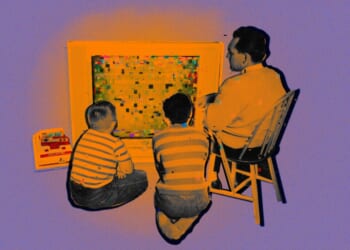
Two Cleveland Guardians pitchers have been indicted on a host of charges related to “prop bets” placed on individual pitches that the players deliberately rigged to score money for bettors.
Emmanuel Clase and Luis Ortiz have been indicted on charges of wire fraud conspiracy, honest services wire fraud conspiracy, conspiracy to influence sporting contests by bribery, and money laundering conspiracy related to a scheme to predetermine certain pitches.
These proposition bets, or “prop bets,” have been a scandal waiting to happen. In this case, Clase and Ortiz engaged in a scheme with gamblers to throw a specific, pre-determined pitch out of the strike zone. In one case, Clase threw rigged pitches out of the strike zone on the first pitch of a specific at-bat that bettors in on the scheme had wagered on. In another case, the hard-throwing Clase, whose fastball has been timed at over 100 MPH, deliberately threw the ball under 97.5 MPH on a specific pitch to win a prop bet.
Clase was arrested in Boston on Sunday. He and Ortiz had been on paid leave after concerning patterns on prop bets were identified by Major League Baseball, and an investigation was launched into whether they were “predetermining pitches.”
Ortiz is a native Dominican and was not in the country when Clase was arrested.
The scheme was simplicity itself.
The pattern they deployed involved Clase relaying the pitch he would throw and whether it would land in the strike zone. The go-to combination? A slider that bounces in the dirt. Clase’s cutter routinely clocked in at 99-100 mph. His slider registered about 91 mph. So, armed with the knowledge that Clase would try to throw a slider for a ball, bettors would allegedly wager on both the velocity of the pitch and the result of it. Over the course of two-plus years, bettors placed more than 100 straight bets and parlays on Clase’s offerings.
Despite MLB banning phone use during games, Clase would routinely text co-conspirators in the stands to inform them of what pitch he would miss or predetermine the speed of a specific pitch.
The bets were relatively small, usually less than $10,000. But it wasn’t the amount that raised the suspicions of the league. It was the kinds of prop bets and the fact that the unusual wagers almost always paid out.
At about 1 p.m. on May 28, 10 minutes before the first pitch of a game against the Los Angeles Dodgers, Clase received a text from Bettor-1 asking if he was all set. Clase responded yes. At 3:36 p.m., just before Clase entered in the ninth to secure a save, two bettors placed wagers totaling about $4,000 that a particular pitch would be a ball or HBP.
In one instance, Clase threw a predetermined ball in the dirt that a batter actually swung at.
“About 20 minutes later, Bettor-1 texted Clase a GIF of a man “hanging himself with toilet paper,” according to the indictment. Clase replied 10 minutes later with a GIF of a “sad puppy dog face,” The Athletic quotes from the indictment.
Those misses were few and far between. Over the course of two years, the gamblers racked up $450,000 in winnings. The two pitchers saw very little of it.
Under new rules agreed upon between MLB and online gambling houses, pitch-level bets will be capped at $200 and barred from parlays. It’s papering over a massive “integrity of the game” problem that all professional and amateur sports must eventually address.
MLB’s efforts to deal with gambling after gamblers paid the Chicago White Sox to throw the 1919 World Series were the only sure way to restore the integrity of the game.
Owners brought in a hard-nosed judge as Major League Baseball’s first commissioner, Kenesaw Mountain Landis. Some of the crooked players had tried to say they didn’t throw the games at all, that they tried their best. “Shoeless” Joe Jackson had a good case. He swore he never took a dime and was the MVP of the series.
Landis didn’t care.
“Regardless of the verdict of juries, no player that throws a ball game, no player that entertains proposals or promises to throw a game, no player that sits in a conference with a bunch of crooked players and gamblers where the ways and means of throwing games are discussed, and does not promptly tell his club about it, will ever again play professional baseball,” Landis wrote.
The “death sentence” by Landis didn’t end gambling scandals in baseball. But it restored the game’s shattered integrity, and that’s what mattered. Baseball went on to become the “National Pastime” until the late 1970s.
Something similar is going to have to happen in all amateur and professional sports, or the integrity of athletic competition will be destroyed.
After more than 40 days of screwing Americans, a few Dems have finally caved. The Schumer Shutdown was never about principle — just inflicting pain for political points.
Help us continue to report the truth about the Schumer Shutdown. Use promo code POTUS47 to get 74% off your VIP membership.

















